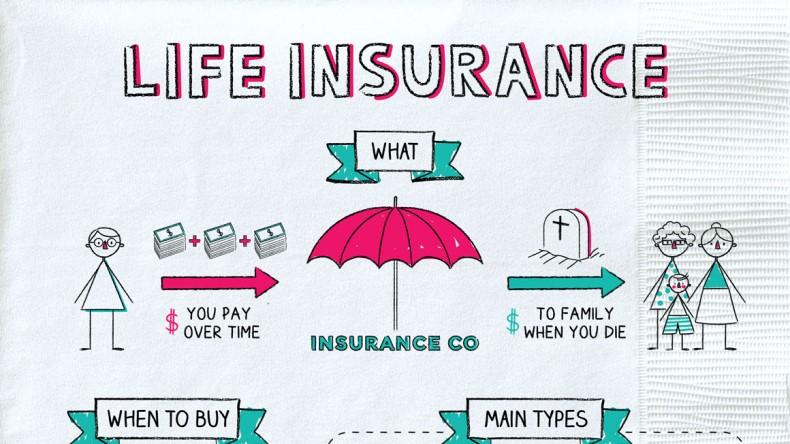In an ever-evolving financial landscape, life insurance policies have transcended their traditional role of providing a safety net for beneficiaries, emerging as versatile financial instruments that offer substantial cash value options. As consumers become increasingly savvy about their financial planning, the demand for policies that combine protection with investment growth has surged. This article delves into the intricacies of life insurance policies, focusing specifically on those that offer the most advantageous cash value components. Through a comprehensive analysis, we will explore the various types of policies available, evaluate their cash value accumulation potential, and provide insights into the factors that influence their performance. By examining these elements, readers will gain a clearer understanding of which life insurance policies may best align with their financial goals, offering both security and the opportunity for wealth accumulation.
Understanding Cash Value in Life Insurance Policies
Cash value is a pivotal component in certain life insurance policies, acting as a savings account that grows over time and can be accessed by policyholders. This feature is predominantly found in permanent life insurance types, such as whole life, universal life, and variable life policies. Each of these offers distinct cash value accumulation methods and growth potential:
- Whole Life Insurance: Provides guaranteed cash value growth at a fixed interest rate, making it a stable choice for those seeking predictable returns.
- Universal Life Insurance: Offers flexible premiums and death benefits, with cash value growth tied to current interest rates, allowing for potential increases in value.
- Variable Life Insurance: Invests cash value in a selection of sub-accounts, similar to mutual funds, which can lead to higher growth potential but also increased risk.
Understanding these differences is crucial for selecting a policy that aligns with your financial goals. Each option has unique benefits and considerations, and the best choice depends on factors like risk tolerance, investment preferences, and long-term financial planning.

Comparing Whole Life and Universal Life Insurance for Cash Value Growth
When evaluating life insurance policies for their potential in cash value growth, it’s essential to understand the key differences between whole life and universal life insurance. Whole life insurance provides a stable and predictable cash value accumulation, thanks to its fixed premium structure and guaranteed interest rate. This predictability makes it a conservative choice for those who prefer stability and a straightforward growth trajectory. Policyholders can rely on a consistent buildup of cash value over time, which can be utilized for loans or withdrawals, often without affecting the policy’s death benefit.
On the other hand, universal life insurance offers more flexibility and potentially higher returns. It allows policyholders to adjust premiums and death benefits, adapting to changing financial circumstances. The cash value in a universal life policy is tied to the performance of the underlying investment options, which means it can grow faster than that of a whole life policy. However, this also introduces an element of risk, as the cash value can fluctuate based on market conditions. Universal life policies often appeal to those who are comfortable with a bit of risk in exchange for the possibility of greater cash value accumulation.
- Whole Life Insurance: Predictable growth, fixed premiums, guaranteed interest rate.
- Universal Life Insurance: Flexible premiums and benefits, potential for higher returns, market-dependent growth.
Key Factors Influencing Cash Value Accumulation
Several elements play a crucial role in determining the accumulation of cash value within life insurance policies. Premium allocation is a primary factor, as it dictates how much of the premium paid goes towards building cash value versus covering insurance costs. Policies that allocate a higher percentage of premiums to the cash value component naturally accumulate more over time. Another significant influence is the interest rate or investment performance associated with the policy. For example, whole life insurance typically offers a guaranteed interest rate, whereas universal life policies might offer variable interest rates based on market performance, potentially leading to higher returns but with increased risk.
Additionally, the policy’s fee structure can significantly impact cash value growth. Fees and charges, such as administrative fees, mortality charges, and surrender charges, can erode cash value accumulation. Policies with lower fees generally allow for a more substantial build-up of cash value. It’s also important to consider policy riders and options, which can either enhance or diminish cash value, depending on their cost and impact. Evaluating these factors in combination can help policyholders choose the best life insurance option for maximizing cash value accumulation.

Expert Recommendations for Maximizing Cash Value in Life Insurance
To enhance the cash value of your life insurance policy, it’s crucial to heed expert advice and strategically manage your policy. Here are some key recommendations:
- Choose the Right Policy Type: Opt for permanent life insurance options like whole life, universal life, or variable universal life, which are specifically designed to build cash value over time.
- Regular Premium Payments: Ensure consistent and timely premium payments to allow your policy’s cash value to grow steadily. Missing payments can lead to decreased cash value accumulation.
- Maximize Contributions: If your policy allows, contribute more than the minimum required premium. This can accelerate cash value growth and enhance your policy’s financial benefits.
Investment Options: Some policies offer investment options for cash value growth. Carefully select these options based on your risk tolerance and financial goals, as they can significantly impact your policy’s cash value over time.

